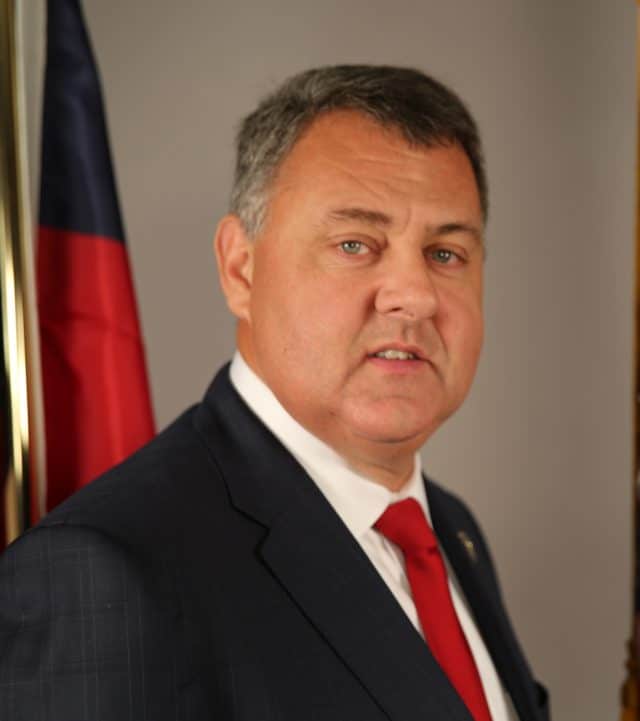
Gooch
A bill in the Georgia legislature that would divert a portion of a state fund that currently subsidizes rural landlines towards rural internet expansion ran into trouble last week after lobbyists representing AT&T and several small rural telephone companies announced opposition to the measure.
Sen. Steve Gooch (R-Dahlonega), the chief sponsor of Senate Bill 65, is seeking to boost subsidy funds to expand high-speed internet in unserved areas of the state. His bill would designate up to $35 million annually towards construction of new broadband connections. Without the measure, state residents would instead see a reduction in Universal Access Fund (UAF) fees on their monthly phone bills beginning later this year. But if the bill passes, modest UAF charges would continue at 2020 levels for an additional nine years, expiring June 30, 2030.
Georgia’s Senate Regulated Industries Committee reviewed the current state of rural broadband funding in a meeting held last Thursday in Atlanta. Gooch noted Gov. Brian Kemp already set aside $20 million for rural broadband in the 2021 state budget, but he felt more needed to be done.
“Twenty million dollars […] is a good start,” Gooch said. “But we need to put more money into this year after year until the problem is fixed.”
Gooch’s measure has attracted 20 co-sponsors in the legislature so far:
| 1. | Gooch, Steve | 51st |
| 2. | Miller, Butch | 49th |
| 3. | Cowsert, Bill | 46th |
| 4. | Tillery, Blake | 19th |
| 5. | Harper, Tyler | 7th |
| 6. | Hatchett, Bo | 50th |
| 7. | Brass, Matt | 28th |
| 8. | Anderson, Lee | 24th |
| 9. | Goodman, Russ | 8th |
| 10. | Walker, III, Larry | 20th |
| 11. | Burns, Max | 23rd |
| 12. | Ginn, Frank | 47th |
| 13. | Thompson, Bruce | 14th |
| 14. | Hickman, Billy | 4th |
| 15. | Anavitarte, Jason | 31st |
| 16. | Summers, Carden | 13th |
| 17. | Robertson, Randy | 29th |
| 18. | McNeill, Sheila | 3rd |
| 19. | Tippins, Lindsey | 37th |
| 20. | Watson, Ben | 1st |
Georgia’s cable and phone companies appear much less supportive of Gooch’s effort. Leading the charge against Gooch’s bill was AT&T Georgia. Kevin Curtin, AT&T’s assistant vice president of legislative affairs in Georgia, said diverting money from the UAF Fund to rural broadband expansion was unnecessary.
“There are many federal government programs doling out substantial amounts of funding to spread broadband,” Curtin said. AT&T has regularly pointed to the FCC’s Rural Digital Opportunity Fund (RDOF) as the best source of rural broadband funding. The 10-year, $9.2 billion program has already designated $326.5 million for rural broadband expansion in Georgia. But it will take years for RDOF to dispense its available funds.
The state’s largest lobbying group for the cable industry does not care for the bill either.
“We want to continue to try to bring broadband to every Georgia citizen,” said Hunter Hopkins, interim executive director of the Georgia Cable Association. “Let’s just put more money in the general fund versus tinkering with the UAF.”
 Rural Georgians are usually left waiting indefinitely for private industry investment to expand rural internet access. Instead, rural utility cooperatives are now stepping up to solve the rural broadband problem in parts of the state, often without waiting for government subsides.
Rural Georgians are usually left waiting indefinitely for private industry investment to expand rural internet access. Instead, rural utility cooperatives are now stepping up to solve the rural broadband problem in parts of the state, often without waiting for government subsides.
Last week, Conexon, a fiber overbuilder and internet service provider teamed up with two member-owned utility co-ops with a plan to bring high-speed gigabit internet to 80,000 homes and businesses in 18 rural Middle Georgia counties.
The partnership will combine utility co-op investments of $135 million from Central Georgia EMC and $53 million from Southern Rivers Energy with $21.5 million from Conexon to build a new, 6,890 mile fiber to the home broadband network over the next four years that will serve residents in Bibb, Butts, Clayton, Coweta, Crawford, Fayette, Henry, Jasper, Jones, Lamar, Meriwether, Monroe, Morgan, Newton, Pike, Putnam, Spalding, and Upson counties. Monroe County has also offered $1.3 million to incentivize the partnership to break ground in that county as quickly as possible.
Customers in rural Georgia have given up waiting for companies like AT&T and Windstream to expand high-speed internet service.
“The majority of members in our service area have no access to the quality, high-speed internet service they so desperately need. That changes today,” said Southern Rivers Energy President and CEO Michael McMillan. “We know electric cooperatives play a critical role in connecting underserved areas and we are proud to partner with Conexon to help bridge the digital divide for our communities. This partnership will enable thousands of rural Georgians to finally access the same online connections as those in more urban areas, while allowing us to maintain focus on our core mission – providing reliable, affordable electricity to our members.”


 Subscribe
Subscribe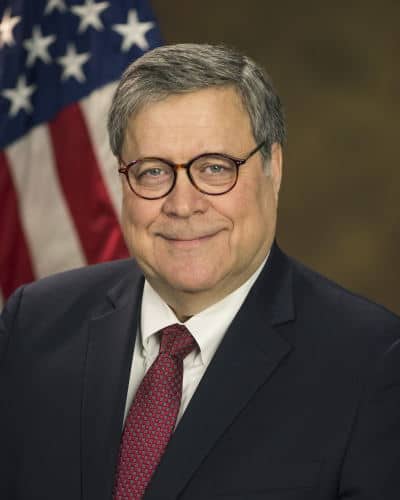
 The Justice Department proposal primarily states that when internet companies “willfully distribute illegal material or moderate content in bad faith, Section 230 should not shield them from the consequences of their actions.”
The Justice Department proposal primarily states that when internet companies “willfully distribute illegal material or moderate content in bad faith, Section 230 should not shield them from the consequences of their actions.” In June, the Justice Department proposed that Congress take up legislation to curb this immunity. This was after Trump in May signed an executive order that seeks new regulatory oversight of tech firms’ content moderation decisions and backed legislation to scrap or weaken Section 230.
In June, the Justice Department proposed that Congress take up legislation to curb this immunity. This was after Trump in May signed an executive order that seeks new regulatory oversight of tech firms’ content moderation decisions and backed legislation to scrap or weaken Section 230.
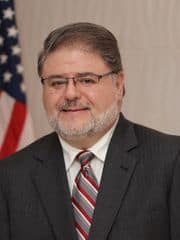
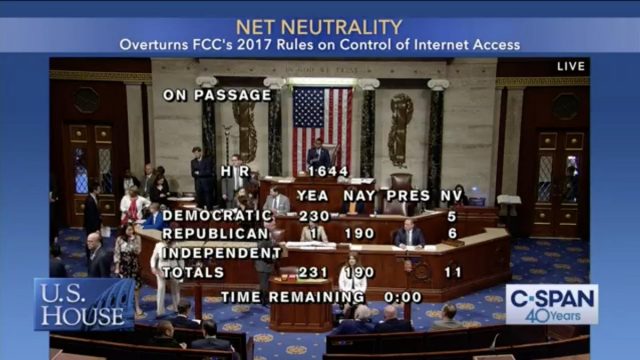 The House on Wednesday approved a bill on a 232 to 190 vote along party lines to restore net neutrality protections first adopted in 2015, but repealed in 2018 by the Republican majority serving the Trump Administration’s Federal Communications Commission under the leadership of Chairman Ajit Pai.
The House on Wednesday approved a bill on a 232 to 190 vote along party lines to restore net neutrality protections first adopted in 2015, but repealed in 2018 by the Republican majority serving the Trump Administration’s Federal Communications Commission under the leadership of Chairman Ajit Pai.

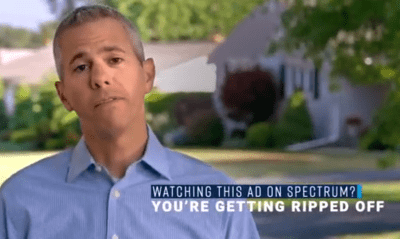
 Brindisi has bristled over the New York State Public Service Commission’s decision to repeatedly extend the deadline given to Charter to file an orderly exit plan winding down its cable operations in the state. The most recent extension was approved on Wednesday, now giving Charter Communications until April 5, 2019 to appeal the Commission’s decision and until May 9, 2019 to file its six-month exit plan.
Brindisi has bristled over the New York State Public Service Commission’s decision to repeatedly extend the deadline given to Charter to file an orderly exit plan winding down its cable operations in the state. The most recent extension was approved on Wednesday, now giving Charter Communications until April 5, 2019 to appeal the Commission’s decision and until May 9, 2019 to file its six-month exit plan.